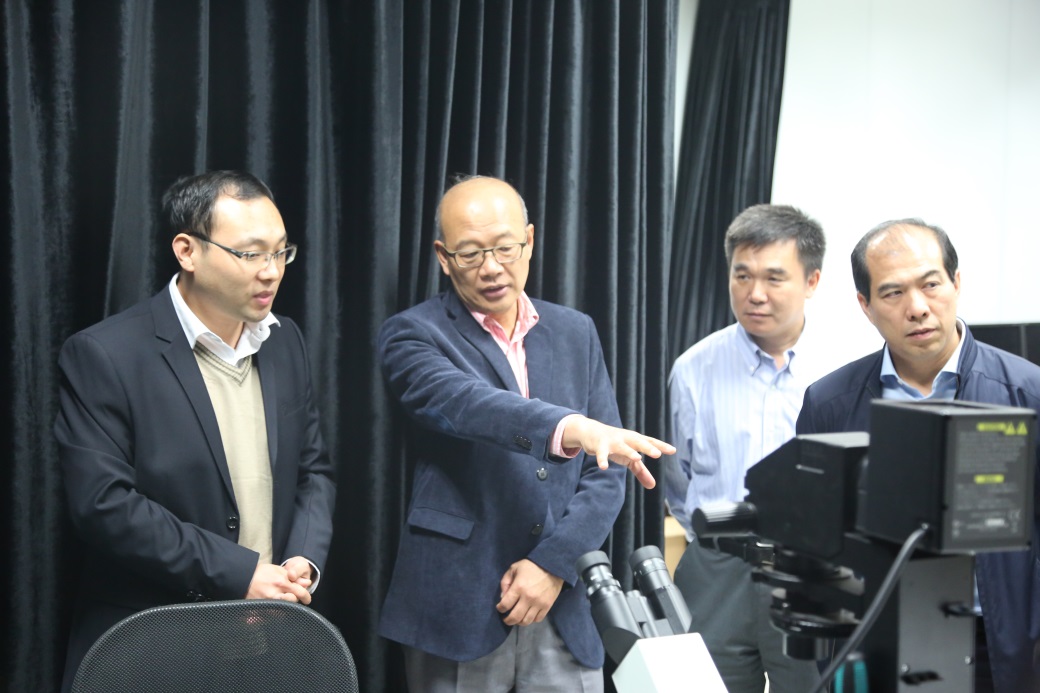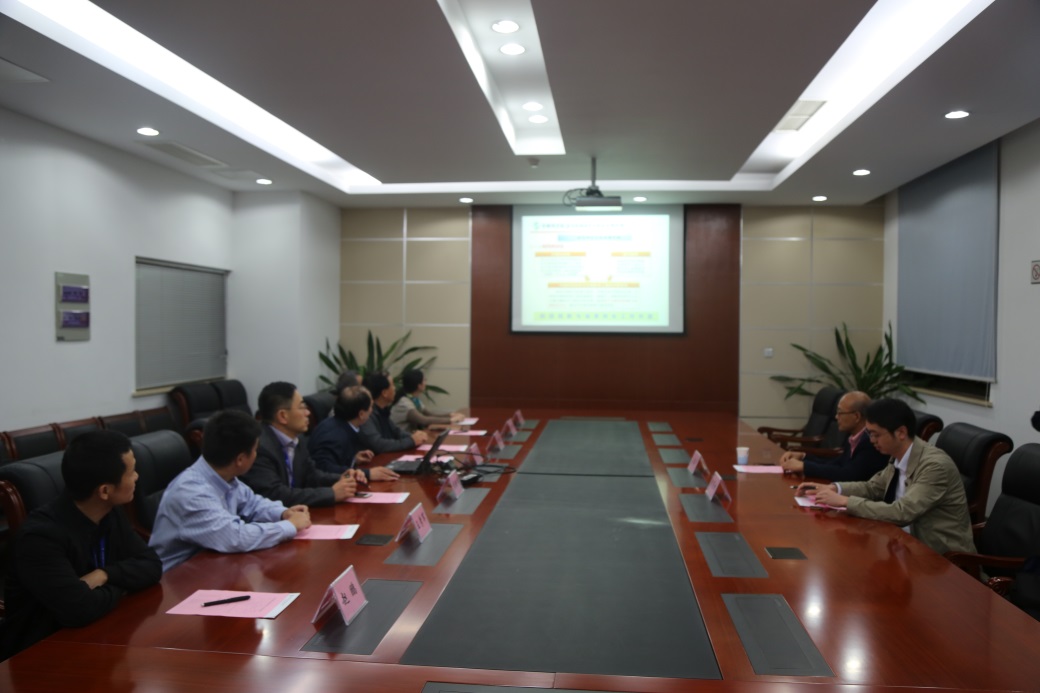On October 20, Wang Enge, vice president of the Chinese Academy of Sciences, investigated Suzhou Institute of Biomedical Engineering and Technology (SIBET), Chinese Academy of Sciences. He firstly visited Jiangsu Provincial Key Laboratory of Medical Optics, and listened to the report of the advancement of the major program “Development of Core Components of Super-Resolution Microscope”. At the ensuing symposium, Deng Qiang, secretary of the institute, concluded the development of SIBET in the past five years and reported the recent achievements they acquired and the next phase of work. Wang Enge affirmed the achievements made by SIBET in the past five years. He pointed out that SIBET, as a newly-established institute, successfully explored a new path of scientific research and cultivated a lot of young scientists, the development of which was quite remarkable. He further emphasized that the report of the 19th National Congress of the Communist Party of China proposed to strengthen the construction of national innovation system and strategic forces of science and technology. Researchers in SIBET should keep their mission firmly in mind, innovate institutional mechanisms, and actively carry out research work on advanced biomedical instruments, reagents and biological materials to lead the development of biomedical engineering and technology in our country. At the same time, SIBET should strengthen the cooperation with numbers of first-rate universities, and cultivate a group of young scientists in the field of strategic science and technology. Relevant scientist and scientific manager representatives in SIBET also participated the symposium. 
Wang Enge visited lab in SIBET 
Symposium with representatives in SIBET |

